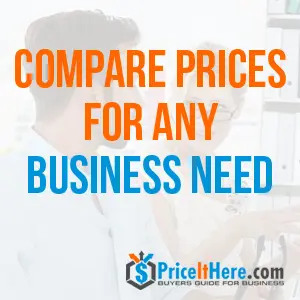
Understanding the Basics of Medical Billing Software
Medical billing software plays an essential role in helping healthcare providers process patient claims and get paid accurately and quickly. But what is medical billing software, how does it work, and how can you make sure your practice is using the best system possible? In this blog post, we’ll explore the fundamentals of medical billing software and provide insight into how to choose the right system for your practice.
What is Medical Billing Software?
Medical billing software is a specialized computer program designed to help manage patient billing information. The software is typically used to automatically create invoices, submit insurance claims, track payments, and send statements to patients. This allows healthcare practices to simplify their billing processes and ensure accurate payment for services rendered.
How Does Medical Billing Software Work?
Medical billing software works by collecting data from various sources including electronic health records (EHRs), clinical documentation systems, insurance companies, government agencies such as Medicare, and other third-party payers. This data is then used to generate claims that are sent out electronically or via paper mail depending on the provider’s needs. Once payment has been received for a claim, the medical billing software will update its databases with the payment information and update any existing records if necessary.


Choosing the Right System
When selecting a medical billing system there are several important factors you should consider: cost, features offered by the product, number of users supported by the system, and ease of use/integration with other programs or systems.
You should also assess providers’ customer service policies before committing to a particular product as this can be essential in quickly resolving any issues that arise while using it. Additionally, consider whether or not you need special features such as e-prescribing or telemedicine support when selecting a system as these additional features may come at an added cost but can be invaluable in providing excellent patient care for those who require them.
Benefits of Using Medical Billing Software
Medical billing software can be an invaluable tool in helping healthcare practices improve their efficiencies and reduce their costs. By eliminating the need for manual entry of patient data, medical billing software can help streamline operations and ensure the accurate processing of claims.
- In addition, medical billing systems are typically able to detect and flag any errors that occur during claim submission.
- This helps reduce the risk of overpaying or underpaying on claims and decreases the amount of time spent on clerical tasks.
- Additionally, many medical billing systems offer features such as automated payment posting, customized patient statements, automated appointment reminders, and tracking of claims status in one centralized location.
- These tools can make it easier for providers to stay up-to-date with their patients’ records and simplify administrative tasks associated with managing a practice.


How Much Does Medical Billing Software Cost?
The price of medical billing software varies greatly depending on the features required and the size of your practice. Generally speaking, smaller practices may be able to get away with using a more affordable entry-level product while larger organizations may need to invest in a more robust system with additional capabilities. Additionally, you should factor in any training or support costs associated with the product and whether or not you need to purchase additional hardware to run the system.
On average, you can expect to spend between $200 – $1000 per month on medical billing software, with higher-end products costing up to $10,000 a month depending on the features included. These costs can vary greatly so it’s important to do your research and compare different systems before making a purchase.
Top Medical Billing Software Available
Popular medical billing software programs include DocuTAP, ClinicBrain, Allscripts Professional EHR, and Kareo. Each program has its own unique features so it’s important to compare the different products to find the one that best suits your needs.
DocuTap Medical Billing
DocuTAP is an all-in-one solution that includes patient scheduling, billing, and reporting while ClinicBrain offers cloud-hosted EHRs with specialized tools for coding, super billing, and analytics.
Kareo Medical Billing Software
Kareo is a comprehensive medical practice management platform that integrates with electronic health records (EHR), appointment reminders, lab tests, and more.
Allscripts Professional EHR
Allscripts Professional EHR provides an end-to-end solution with features such as compliance tracking, population health management, and analytics.


Factors to Consider When Choosing a Medical Billing Software
- No matter which system you choose, it’s important to make sure that the software you select meets your specific requirements and is compliant with all relevant laws and regulations.
- Additionally, always check for customer testimonials or reviews of the system to ensure that it is reliable and easy to use.
- Finally, you should always ask your software provider about their customer support and the types of troubleshooting issues that arise while using it.
- This will help ensure that any problems you encounter can be quickly resolved, allowing you to focus on providing excellent patient care rather than worrying about technical issues.
The use of medical billing software is becoming increasingly important for healthcare practices looking to streamline operations, process claims accurately and quickly, track payments more efficiently, and provide excellent patient care. Before selecting a system for your practice, assess all factors including cost, features offered by the product, number of users supported by the system, ease of use/integration with other programs or systems as well as customer service policies to ensure you’re choosing the best solution possible.
